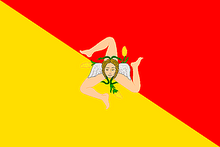For Those Who Appreciate Pomp and Symbolism
If Christian culture is to be renewed, habits are more vital than revivals, rituals more edifying than spiritual highs, the creed more penetrating than theological insight, and the celebration of saints' days more uplifting than the observance of Mother's Day. There is great wisdom in the maligned phrase ex opere operato, the effect is in the doing. Intention is like a reed blowing in the wind. It is the doing that counts, and if we do something for God, in the doing God does something for us.
The poet Dana Gioia, the current director of the National Endowment for the Arts, puts it nicely in the poem "Autumn Inaugural":
There will always be those who reject ceremony, who claim that resolution requires no fanfare, those who demand the spirit stay fixed like a desert saint, fed only on faith, to worship in no temple but the weather.
Gioia acknowledges the point:
Symbols betray us.They are always more or less than what is really meant.
Then:
But shall there be no processions by torchlight because we are weak? Praise to the rituals that celebrate change, old robes worn for new beginnings, solemn protocol where the mutable soul, surrounded by ancient experience, grows young in the imagination's white dress. Because it is not the rituals we honor but our trust in what they signify, these rites that honor us as witnesses--whether to watch lovers swear loyalty in a careless world or a newborn washed with water and oil.
If Christ is culture, let the sidewalks be lit with fire on Easter Eve, let traffic stop for a column of Christians waving palm branches on a spring morning, let streets be blocked off as the faithful gather for a Corpus Christi procession. Then will others know that there is another city in their midst, another commonwealth, one that has its face, like the faces of angels, turned toward the face of God.
Robert Louis Wilken, First Things, April 2004.
Monday, September 27, 2004
Subscribe to:
Comments (Atom)



